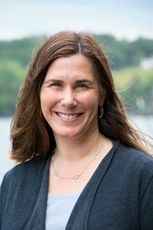
Processing Your Payment
Please do not leave this page until complete. This can take a few moments.
- News
-
Editions
-
- Lists
-
Viewpoints
-
Our Events
-
Event Info
- Women's Leadership Forum 2025
- On the Road with Mainebiz in Bethel
- Health Care Forum 2025
- On The Road with Mainebiz in Greenville
- On The Road with Mainebiz in Waterville
- Small Business Forum 2025
- Outstanding Women in Business Reception 2025
- On The Road with Mainebiz in Bath
- 60 Ideas in 60 Minutes Portland 2025
- 40 Under 40 Awards Reception 2025
- On The Road with Mainebiz in Lewiston / Auburn
- 60 Ideas in 60 Minutes Bangor 2025
Award Honorees
- 2025 Business Leaders of the Year
- 2024 Women to Watch Honorees
- 2024 Business Leaders of the Year
- 2023 NextUp: 40 Under 40 Honorees
- 2023 Women to Watch Honorees
- 2023 Business Leaders of the Year
- 2022 NextUp: 40 Under 40 Honorees
- 2022 Women to Watch Honorees
- 2022 Business Leaders of the Year
-
-
Calendar
-
Biz Marketplace
- News
-
Editions
View Digital Editions
Biweekly Issues
- April 21, 2025 Edition
- April 7, 2025
- March 24, 2025
- March 10, 2025
- Feb. 24, 2025
- Feb. 10, 2025
- + More
Special Editions
- Lists
- Viewpoints
-
Our Events
Event Info
- View all Events
- Women's Leadership Forum 2025
- On the Road with Mainebiz in Bethel
- Health Care Forum 2025
- On The Road with Mainebiz in Greenville
- On The Road with Mainebiz in Waterville
- + More
Award Honorees
- 2025 Business Leaders of the Year
- 2024 Women to Watch Honorees
- 2024 Business Leaders of the Year
- 2023 NextUp: 40 Under 40 Honorees
- 2023 Women to Watch Honorees
- 2023 Business Leaders of the Year
- + More
- 2022 NextUp: 40 Under 40 Honorees
- 2022 Women to Watch Honorees
- 2022 Business Leaders of the Year
- Nomination Forms
- Calendar
- Biz Marketplace
UMaine launches marine product program to help drive the state's 'blue economy'
 Courtesy / University of Maine
UMaine’s new Blue Economy Program seeks to promote marine product development and commercialization. Here, a shellfish biology class, conducted by UMaine’s Darling Marine Center, provides hands-on instruction to students in the program.
Courtesy / University of Maine
UMaine’s new Blue Economy Program seeks to promote marine product development and commercialization. Here, a shellfish biology class, conducted by UMaine’s Darling Marine Center, provides hands-on instruction to students in the program.
A new University of Maine program aims to deepen partnerships between science and business experts in the state's fisheries, aquaculture sector and other working-waterfront industries.
UMaine’s Darling Marine Center and Maine Business School are launching the UMaine Blue Economy Program, where students, faculty, communities and industry partners will work together to conduct research and develop products related to Maine’s ocean-based commerce, according to a news release.
The graduate education and research initiative is supported with a $50,000 award from the William Procter Scientific Innovation Fund.
“The UMaine Blue Economy Program builds on more than 55 years of creative collaboration at the Darling Marine Center among scientists, entrepreneurs and other professionals,” Darling’s director, Heather Leslie, said in the release. “It will enable us to deepen partnerships among science and business experts while enhancing UMaine’s contributions to fisheries, aquaculture and other working waterfront-dependent industries of the state.”

Founded in 1965, Darling Marine Center — which is located on the Damariscotta River in Walpole and has over 40 faculty, staff and students who work there year-round — is undergoing a $5.2 million waterfront infrastructure improvement project. Its goals is to enhance the center's research and business incubator projects, such as tracking the health of lobster populations amid climate change and exploring new ways to farm shellfish and seaweed.
The grant will support the work of UMaine MBA students, who will work with researchers at Darling Marine Center to gain experience and skills in the rapidly developing sector.
“The UMaine Blue Economy Program pilot is a leading example of how UMaine’s MBA curriculum is quickly moving toward cross-disciplinary, experiential learning and market-driven programs to drive real change in Maine’s economy and beyond,” said Norm O’Reilly, recently appointed dean of the UMaine Graduate School of Business.
Aquaculture in particular is seen as an area of high interest in the future with hundreds of new jobs projected to result in the next decade due to the growth of established farms and new development.
More than 10,000 people are directly engaged in the harvest and farming of seafood in Maine, according to the Maine Department of Marine Resources.
Growth is also anticipated in the ocean renewable energy sector.
The business school's MaineMBA program has seen a 300% increase in enrollment since 2016.














0 Comments